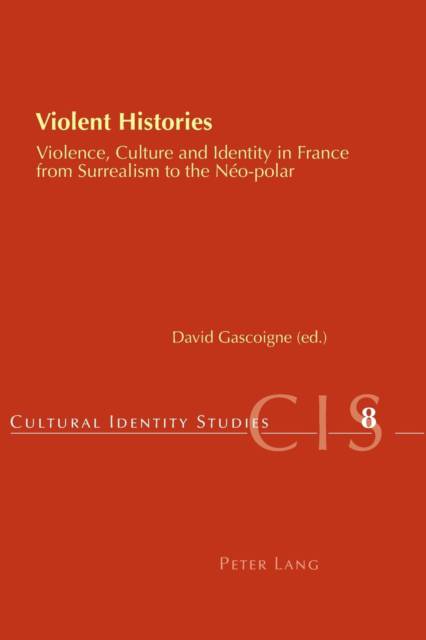
- Afhalen na 1 uur in een winkel met voorraad
- Gratis thuislevering in België vanaf € 30
- Ruim aanbod met 7 miljoen producten
- Afhalen na 1 uur in een winkel met voorraad
- Gratis thuislevering in België vanaf € 30
- Ruim aanbod met 7 miljoen producten
Zoeken
Violent Histories
Violence, Culture and Identity in France from Surrealism to the Néo-polar
€ 68,45
+ 136 punten
Omschrijving
This volume presents selected papers from the conference 'Violence, Culture and Identity' held at St Andrews University in 2003. It seeks to explore the ways in which French writing since 1920 has registered and reflected on the violent national traumas of the World Wars, the Occupation and decolonisation. The essays consider how these crises have led French writers to a critical, often painful reassessment of national, cultural and individual identity. Contributors trace the different challenges offered to any comfortable consensual notions of Frenchness, and to the structures of authority which invest in such a consensus. A recurrent preoccupation is the problematic issue of 'memory culture', especially of how a post-conflict generation copes with an avowed or concealed inheritance of violence and guilt. The thematics, ethics, rhetoric and imagery of violence are charted through debates around surrealism and in writings by major figures, such as Malraux, Sartre, Camus, Genet and Modiano, while a final group of essays looks closely at how a new wave within the popular roman noir genre (the 'néo-polar') engages emphatically and controversially with these issues and their political implications.
Specificaties
Betrokkenen
- Uitgeverij:
Inhoud
- Aantal bladzijden:
- 210
- Taal:
- Engels
- Reeks:
- Reeksnummer:
- nr. 8
Eigenschappen
- Productcode (EAN):
- 9783039103171
- Verschijningsdatum:
- 6/07/2007
- Uitvoering:
- Paperback
- Formaat:
- Trade paperback (VS)
- Afmetingen:
- 152 mm x 229 mm
- Gewicht:
- 285 g

Alleen bij Standaard Boekhandel
+ 136 punten op je klantenkaart van Standaard Boekhandel
Beoordelingen
We publiceren alleen reviews die voldoen aan de voorwaarden voor reviews. Bekijk onze voorwaarden voor reviews.










